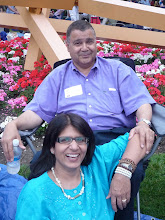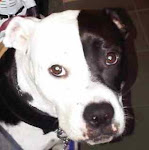This month 50 years ago, Americans responded viscerally to the clarion call of our government and the Peace Corps was established. Thousands of young Americans signed up to travel to different countries for twenty-seven months with only a rudimentary knowledge of the local language and culture, living far away from loved ones and familiar surroundings. The mission then and as it is today, is to provide technical help of an unknown nature, adapting and developing ideas from learned theoretical processes and applying them to the situation at hand. This, together with sharing American culture and values and bringing back an understanding of the local culture and mores to share with others at home is what PC service is all about!
Though it could be argued that volunteers are more prepared than ever with information available through high tech gadgets and the internet, this visceral response remains the same today as it was 50 years ago. Even with 7% of the volunteers over 50 years old and an average of 28 years today, volunteers are still open to the idea of learning a new language and culture, choosing months of maybes, why not’s and lets see coupled with days of isolation and loneliness, just because beneath it all they are cocksure and foolhardy to think that they can conquer anything, anytime or anywhere.
The PC mantra is not only a safe and moral choice about helping others, but it is also to prove to ourselves that we can do it. Though we sign up for any number of reasons and use different coping skills, each one finds an inner strength to live, work and return, with a better understanding of self and that all human relationships are based on fragile, cultural norms.
Macedonians I have learned define nationality by culture, tribal or bloodlines, and not by territory or citizenship. So, the citizens’ are Macedonians, Albanian, Roma, Vlach, Bosniaks, Turks, etc. even if they have lived here for hundreds of years! My readings of the Balkan people suggest that it is also true elsewhere in this region of Europe. The people are not integrated in the rural towns and villages; they live parallel lives, at times with little or no social interaction beyond public life. In small towns and villages they remain segregated and a recent fight between two students (one from a neighboring town (Turks) and one from here (Macedonian) at the local high school quickly took on an ominous overtones of them and us..
Beyond that great divide, a year and a half later, I no longer see Macedonia with ‘foreign’ eyes, loosing that observer mindset, as the daily activities concerned with work and life have insidiously seeped into me. I enjoy the “let life happen” attitude and take things and events as they come, with a shared sense of working towards common goals and a collegial feeling with coworkers. The focus of local government is still on finding ways to get grant money to take care of ambitious municipal projects, to rebuild the town in the manner of a great metropolitan city and less on improving maintenance of the infrastructure or encouraging investment in the shuttered factories in town.
Though I still have difficulty fully comprehending the subtext of a Macedonian conversation, the mothers’ voice the same concerns and anxieties I had about raising kids. We are equally concerned over changes in generational values and mores. Yet I see the comfort and ease with which different age groups talk and interact with each other. This may be more widespread in the villages and small towns with fewer economic resources, but is in stark contrast to the trendy adult living communities, in the US where families with children cannot purchase or rent a home.
On a closing note, I met an incredible woman, a soul sister, separated not by ideas or thoughts, only by a different language. We manage to communicate and understand abstract notions by a combination of hand gestures, analogies, and isolated Macedonian and English vocabulary, albeit occasional misunderstandings. Once she told me that if only she could speak English, together we could introduce new ideas in her school and community filled me with hope for the future!



